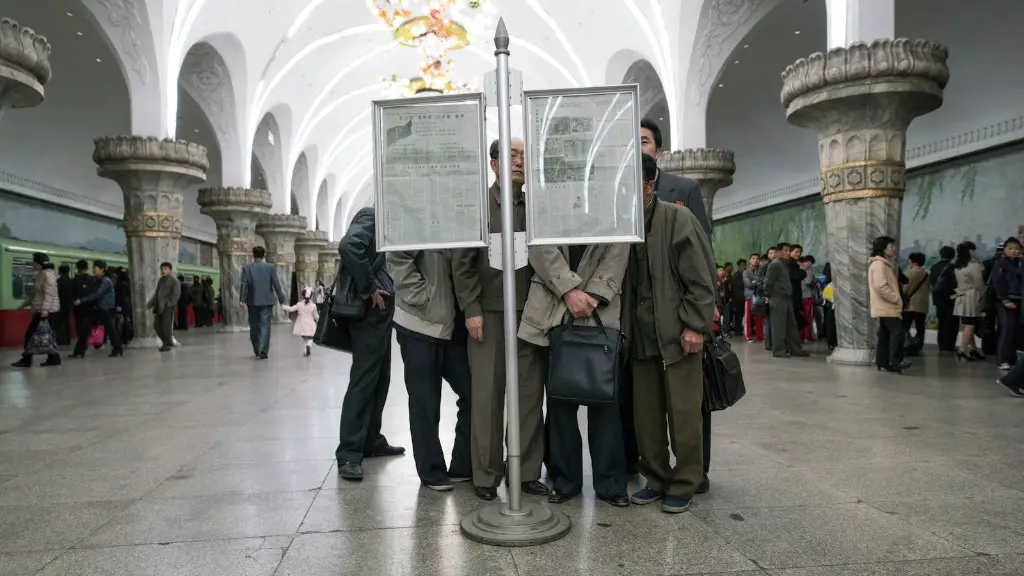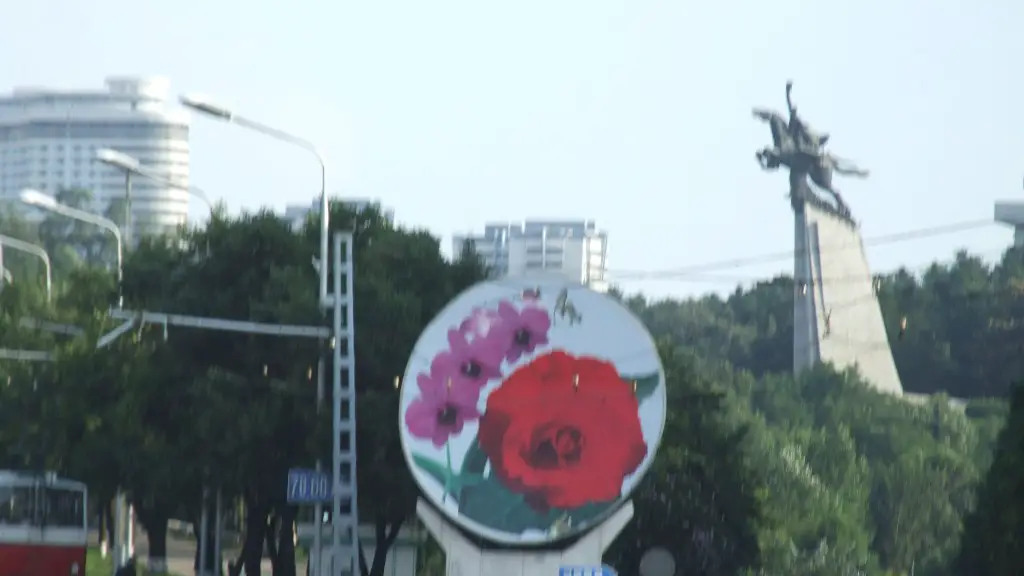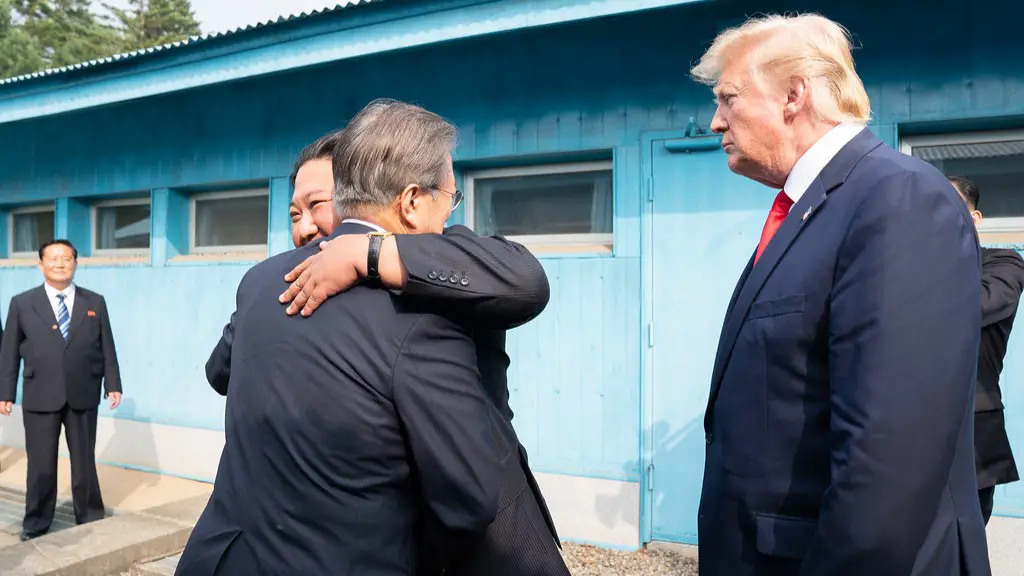North Korea is one of the most isolated and secretive countries in the world, which has been in the spotlight for many years for its repressive government, Kim Jong-un’s dictatorial rule and nuclear and ballistic missile threats. The United Nations Security Council (UNSC) has also imposed economic and diplomatic sanctions on the country in an attempt to put pressure on its leaders to end nuclear weapon development and bring it into cooperation with the international community. But, so far, these efforts have been largely unsuccessful.
The human rights situation in North Korea has been described as the worst in the world, not just by human right organizations and those living in North Korea but also by the United Nations, which recently denounced the North Korean government’s widespread use of torture, arbitrary detention and other forms of repression. The country’s government has been accused of numerous violations of human rights, including widespread forced labor and public executions.
The problem of North Korea is complex and multi-dimensional. The nation is isolated from the rest of the world, making it difficult for people from other countries to communicate or interact with its citizens. This lack of information makes it difficult for non-state actors to take any action against the government and its oppressive policies. There is also a fear of unwanted military escalation, as North Korea continues to pose a nuclear threat.
The most immediate and successful way of dealing with the North Korean problem is through diplomacy. It is important for the international community to take a unified stance and send a strong message to the North Korean government that its repressive policies are not acceptable and will not be tolerated. A strong multilateral framework of sanctions should be adopted and implemented in order to put the necessary pressure on North Korea to abandon its nuclear weapons program, abide by international norms, and make human rights a priority. Moreover, further diplomatic efforts should involve direct dialogue with the North Korean government in order to reach a peaceful resolution.
There also needs to be an independent and transparent monitoring system in place to ensure that any agreements between North Korea and the United Nations are respected and adhered to. In addition, it is essential to provide humanitarian help to the North Korean people, as they suffer the most from these government policies. This could involve providing food, medicine and other essential resources, as well as helping to enable economic development and providing economic incentives to North Koreans.
It is also important to remember that it is the North Korean people who suffer the most from their country’s policies. Therefore, it is important to have a meaningful dialogue with citizens of the country. For example, engaging with North Korean defectors and those living in North Korea who have access to the outside world can provide useful insights into North Korean society and its strategies of resilience.
Finally, there needs to be a comprehensive strategy in place to address the North Korean problem. This should involve a variety of measures, from economic sanctions to diplomatic engagement, and from providing humanitarian aid to fostering dialogue. Such a strategy will not only enhance global security, but also make a real difference to the lives of the North Korean people.
Innovations In Sanctions
When dealing with North Korea, sanctions are an important tool for exerting diplomatic pressure. The sanctions often take the form of economic measures, such as restricting trade, limiting access to financial systems, or imposing financial penalties. However, it is important to note that the effectiveness of sanctions can vary greatly depending on the type of pressure applied. In order to maximize their impact, it is important to consider innovative sanctions, such as targeted asset freezes, visa bans, shipping blockades, or broader financial restrictions.
In addition, it is important to recognize the need for a more tailored approach to sanctions. Due to their largely indiscriminate nature, sweeping sanctions can often lead to unintended consequences, such as exacerbating poverty, weakening civil society, or even leading to humanitarian crises. As such, the international community should work to ensure the necessary safeguards are in place to prevent such negative outcomes, while still being able to put effective pressure on North Korea.
Finally, it is important to consider the constraints imposed by any sanctions regime, such as the oft-cited “Kavanaugh Dilemma”. This refers to the accusation that sanctions regimes are typicaly too “narrow or blunt”, making them significantly less effective than other methods of pressure. In light of these factors, it is important for the international community to ensure that the sanctions imposed against North Korea are tailored to the specific challenge of the current situation.
Countering North Korea’s Propaganda
When it comes to North Korea, the issue of propaganda must be addressed. The North Korean government has a highly sophisticated propaganda apparatus which is used to control information and limit the information available to its citizens. This apparatus also serves to discount any external criticism of the North Korean government, thus insulating its citizens from the realities of global events or opinion.
It is important, therefore, for the international community to find ways to counter North Korean propaganda. This can be done by creating and disseminating more accurate information about North Korea. For example, providing independent analysis and factsheets about issues such as human rights, nuclear issues, and economic policies, in addition to news and cultural content, can be used to provide alternative perspectives and boost citizens’ access to accurate information.
In addition, it is important to recognize that North Korea is heavily reliant on foreign investments for its economic survival. It is, therefore, necessary for foreign governments, international organizations, and civil society to pressure companies and countries that are investing in the North Korean economy to ensure that the investments are not used to support the oppressive regime. This is particularly important in light of recent reports of North Korea’s use of forced labor and other human rights violations.
Finally, it is essential to recognize the power of international communication and the role it can play in countering North Korea’s propaganda. International cooperation and dialogue between North Koreans and those living outside of the country can be used to provide alternative voices and spread more accurate information about the country.
Cyber Security
In order to effectively combat North Korea, it is essential to recognize the role that cyber security plays in the international security landscape. This is particularly relevant given North Korea’s aggressive use of cyber warfare tactics to launch attacks against other countries or steal sensitive data.
It is, therefore, important for the international community to ensure that cyber security measures are in place in order to protect against North Korea’s increasingly advanced cyber capabilities. This can involve developing better early-warning systems, improved cyber threat intelligence sharing, better encryption techniques, and improved capabilities for responding rapidly to cyber threats.
In addition, it is essential to recognize the importance of collaboration between state and non-state actors in this field. For example, state actors should work with civil society, international organizations, and the private sector to develop better strategies for responding to cyber threats. This could involve creating regional or global networks of cyber security experts to collaborate on cyber defense initiatives and training programs.
Furthermore, it is becoming increasingly important to recognize the roles of public and private coordination in dealing with cyber threats. Public-private partnerships can be used to improve the speed and effectiveness of responding to cyber threats, provide better cyber security training for both public and private sector actors, and help facilitate the sharing of data between governments and the private sector.
Citizen Diplomacy
Finally, the international community should take advantage of opportunities for citizen-level diplomacy between North Koreans and the rest of the world. These encounters can occur in the form of online forums and social media platforms, as well as more traditional forms of diplomacy such as film festivals, visits, and exchanges between citizens. Citizen level Diplomacy can be particularly effective in spreading more accurate information about North Korea, confronting the regime’s narratives, and providing North Koreans with more accurate and nuanced views of the outside world.
In addition, such encounters can provide an opportunity for non-state actors to engage directly with the North Korean regime, acting as a ‘counterweight’ to traditional diplomatic efforts from governments and international organizations. They can also provide an effective bridge to build trust between North Koreans and the rest of the world, as well as help to foster dialogue and increase understanding between citizens of both countries.
Citizen level diplomacy can also be used to place pressure on the North Korean regime from the bottom up, and convey messages of support from people outside of the country to those within. Finally, such encounters can be used to bring attention to the plight of North Koreans and help to create more awareness of the human rights violations that they are facing.
Building an International Coalition
In order to effectively tackle the North Korean issue, it is essential to build a strong international coalition. This coalition should include traditional diplomatic and military efforts, but should also involve the efforts of civil society and non-state actors who can offer alternative perspectives and approaches. It is also important to recognize the importance of regional actors who have influence over North Korea and can act as brokers with the nation.
The formation of such a coalition should involve a unified and coordinated approach from all relevant stakeholders, including governments, civil society, media, and the private sector. This coalition should be able to share information, resources, and intelligence in order to strengthen their ability to act in a coordinated and effective manner. Furthermore, this coalition should be flexible and adaptive, able to quickly and effectively respond to any shifts in the international security environment.
This coalition should also recognize the importance of multilateralism, working with all relevant partners to ensure that all efforts are coordinated and mutually reinforcing. It is also essential to consider the importance of building trust between members of the coalition, in order to ensure effective cooperation. Lastly, this coalition should focus on identifying, and if possible, involving those countries that can offer viable solutions to the North Korean threat.





